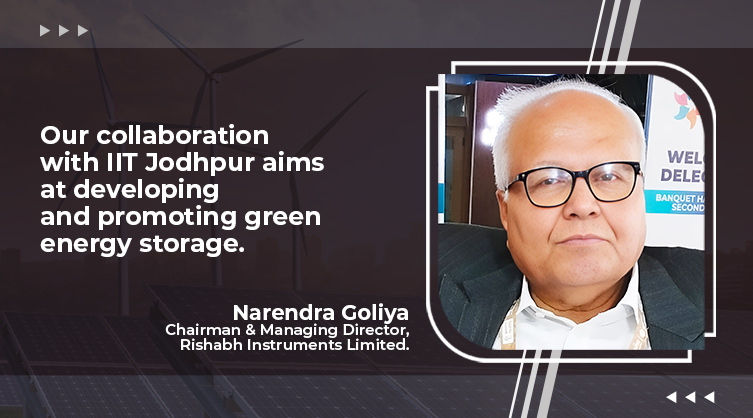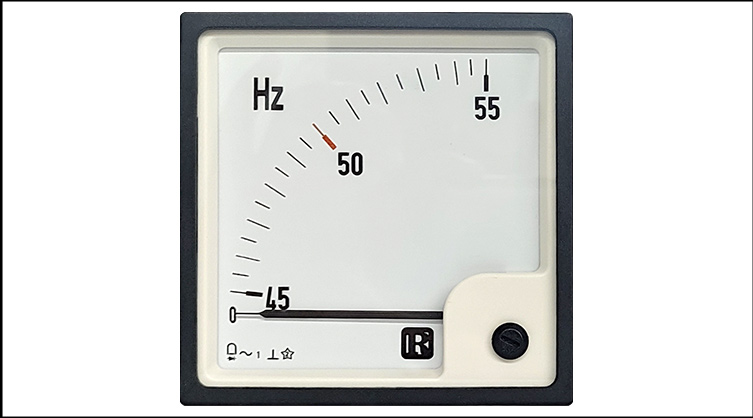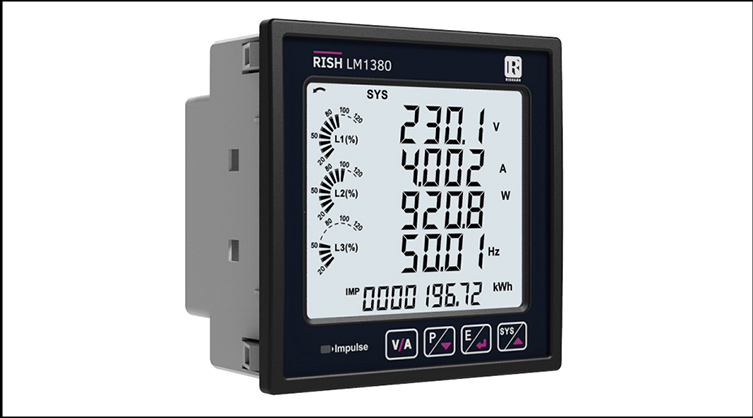Rishabh Instruments innovates in solar inverters, testing & measuring instruments, and power automation
By EPR Magazine Editorial March 24, 2023 3:15 pm IST
By EPR Magazine Editorial March 24, 2023 3:15 pm IST

Rishabh Instruments operates across five markets and is committed to developing innovative technologies in each vertical. They are actively working towards improving energy efficiency and power quality by measuring various electrical parameters, providing corrective devices, and utilising power factor correction devices and active harmonic filters to reduce energy consumption and enhance device quality,

What markets do Rishabh Instruments serve, and what innovative technologies are they developing in each vertical?
Rishabh Instruments caters to five unique markets, including testing and measuring instruments, power automation, and solar inverters, and is committed to developing groundbreaking technology in each sector. Starting at 3 kW, our solar inverter range is housed in a lightweight aluminium enclosure, demonstrating our dedication to functionality and portability. Furthermore, we provide LCD meters capable of monitoring individual harmonics in automation and brand-new multimeters and clamp meters. At ELECRAMA 2023, we showcased our entire product line, showcasing our commitment to innovation and excellence.
How can we further accelerate the transition to clean energy and overcome the challenges associated with energy storage?
As the world transitions towards green and clean energy sources, the need for energy storage is becoming more urgent. Despite the availability of renewable energy sources, many still need to rely on chemical components that require significant energy consumption for production. Although conventional sources still generate a substantial portion of the world’s energy, renewable sources are slowly gaining ground. In this context, it is heartening that India also embraces green energy sources in its manufacturing processes.

How successful will the PLI schemes for semiconductor devices be in reducing imports and boosting domestic production in India?
The PLI scheme has opened up opportunities for companies to expand their operations into previously unexplored areas. Several industries are investing in the Indian government’s PLI and state-level schemes, such as the Maharashtra electronics policy, which subsidises investment and production. These initiatives encourage companies to undertake new projects and innovations despite the inherent risks. The government’s recognition and financial support also enhance companies’ risk-taking abilities. The semiconductor devices’ PLI schemes are expected to be highly successful, even though there may be some delays in achieving full operational capacity.
How has the Indian government supported the growth of solar energy, and what steps are being taken to improve solar cell efficiency rates in the country?India has surpassed global standards in its energy transition by meeting the prime minister’s targets ahead of schedule, positioning itself as the world’s leading solar energy producer with various technologies already in development. Its success in vaccine production has also made it a top vaccination centre, supplying vaccines globally. Given their high solar irradiation levels, there are significant opportunities for improving solar cell efficiency in states such as Rajasthan and Gujarat. While current efficiency rates are below 40 percent, researchers are making progress that can be applied to other countries. The government’s role in incentivising new technology is crucial, and India has proactively promoted solar energy.

What is the Energy Solutions Lab (ESL), and how does it measure energy consumption?
The Energy Solutions Lab (ESL) offers energy consumption measurement services, which are presented to consumers in a way that enables them to provide feedback and suggest changes. Our solar inverters are directly linked to the cloud, allowing for minute-by-minute measurement and recording of data that customers can use to assess solar energy efficiency. We recently partnered with IIT Jodhpur to establish a centre for green energy to promote green energy storage and reduce dependence on conventional energy sources. Institutes are working on multiple projects to explore new avenues for power generation and energy storage, focusing on green energy. Although solar is a promising option, energy storage remains a challenge, and we are collaborating to encourage innovation and entrepreneurship in developing green energy storage solutions.
What steps is Rishabh taking to improve its products’ energy efficiency and power quality? Rishabh recognises the importance of energy efficiency in its products and acknowledges power quality as a crucial global issue, particularly in India. The company measures various electrical parameters, including voltage, current, frequency, power, power factor, harmonics, and transients, to address this. They provide corrective devices that eliminate noise and harmonics, improve power factors, and enhance grid stability while minimising energy generation or usage. As reactive energy has become necessary due to device usage, the company plans to utilise power factor correction devices and active harmonic filters to reduce energy consumption and enhance device quality. Their ultimate goal is to decrease energy consumption during generation and usage while increasing energy efficiency in their devices.
For more details visit: https://rishabh.co.in/
We use cookies to personalize your experience. By continuing to visit this website you agree to our Terms & Conditions, Privacy Policy and Cookie Policy.